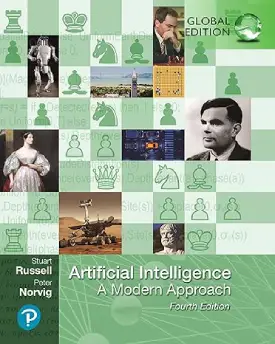AI in Marketing: How Artificial Intelligence Integrates into Marketing
In this article, we explore how artificial intelligence (AI) integrates within the marketing sector.
Table of Contents:
- AI in Marketing
AI and Marketing
Artificial Intelligence (AI) has become a game-changer in the marketing world, offering innovative tools and strategies to enhance customer engagement, personalise experiences, and optimise campaigns. Here, aicorr.com explores how AI works in marketing, providing businesses with unprecedented capabilities to connect with their audiences and drive growth.
Personalisation and Customer Experience
AI enables marketers to deliver highly personalised content and improve customer experiences significantly. By analysing vast amounts of user data, AI algorithms can present dynamic content tailored to individual preferences. This means customers receive product recommendations, targeted ads, and customised messages that resonate with their specific needs and interests.
One prominent application of AI in personalisation is through chatbots and virtual assistants. These AI-driven tools provide 24/7 customer support, answer queries, and assist with shopping, ensuring users have a seamless and satisfying experience. The constant availability and quick response times of AI chatbots enhance customer engagement and build brand loyalty.
Data Analysis and Insights
The ability of AI to analyse and interpret large datasets is revolutionising how marketers understand and interact with their audience. Predictive analytics, powered by AI, examines historical data to forecast future trends, customer behavior, and sales patterns. This predictive capability helps marketers make informed decisions, allocate resources more effectively, and design strategies that are more likely to succeed.
AI also excels in customer segmentation, identifying distinct groups based on behavior, preferences, and demographics. This segmentation allows for highly targeted marketing campaigns, ensuring that messages reach the right audience at the right time, thereby increasing the chances of conversion.
Automating Campaigns
AI plays a pivotal role in automating various aspects of marketing campaigns, making them more efficient and effective. In email marketing, AI optimises content, send times, and frequency based on user interaction data. This results in higher open rates and better engagement, as emails are tailored to individual recipients’ behaviors and preferences.
Similarly, in pay-per-click (PPC) advertising, AI algorithms continuously adjust bids and placements in real-time. This dynamic optimisation maximises return on investment (ROI) by ensuring ads are shown to the most relevant audiences at the most opportune moments.
Content Creation and Curation
Creating and curating content is a time-consuming task, but AI is streamlining this process. AI writing tools can generate blog posts, social media updates, and product descriptions, maintaining consistency and saving marketers valuable time. These tools use natural language processing to produce content that is coherent and engaging, meeting the high standards of modern digital marketing.
Moreover, AI-driven content curation tools gather relevant content from various sources, presenting it to audiences in a cohesive and compelling manner. This keeps users engaged and informed, fostering a stronger connection with the brand.
Sentiment Analysis
Understanding public sentiment is crucial for any marketing strategy. AI-powered social listening tools analyse social media platforms, online reviews, and other digital channels to gauge public opinion about brands, products, and campaigns. This sentiment analysis provides marketers with valuable insights, enabling them to respond promptly to customer feedback and adjust their strategies accordingly.
Customer Relationship Management (CRM)
AI significantly enhances customer relationship management by automating and improving various CRM functions. Lead scoring, for instance, benefits from AI’s ability to evaluate potential leads based on their interactions with the brand. This prioritisation ensures that sales teams focus on the most promising prospects, increasing the likelihood of conversions.
AI also helps predict customer churn, identifying individuals at risk of leaving. By recognissing these patterns, businesses can take proactive measures to retain customers, such as offering personalised incentives or addressing specific concerns.
Voice and Visual Search
As voice and visual search technologies gain popularity, AI plays a crucial role in optimising content for these new search methods. Voice search optimisation ensures that content is easily discoverable through voice queries, which are often phrased differently from text searches. This adaptation helps brands stay relevant as consumer behaviors evolve.
Visual recognition, another AI-driven technology, allows customers to search for products using images rather than text. This feature is particularly useful in e-commerce, where users can find items similar to those they’ve photographed or seen elsewhere, enhancing the shopping experience.
Augmented Reality (AR) and Virtual Reality (VR)
AI-powered AR and VR technologies create immersive and interactive experiences that captivate customers. Virtual try-ons, for example, allow users to see how products look on them before making a purchase, reducing uncertainty and increasing confidence in buying decisions. These interactive experiences not only engage customers but also differentiate brands in a competitive market.
Influencer Marketing
AI is transforming influencer marketing by identifying influencers whose audiences align with a brand’s target demographic. This ensures that marketing efforts are more effective and reach the right people. AI also tracks the performance of influencer campaigns, providing insights into engagement and ROI, which helps in refining future strategies.
Fraud Detection and Security
In digital advertising, AI is essential for detecting and preventing fraudulent activities. AI algorithms monitor and analyse traffic patterns to identify suspicious behavior, ensuring the integrity of marketing efforts. This fraud prevention capability protects brands from wasting resources on ineffective or deceitful tactics.
The Bottom Line
AI has undeniably revolutionised marketing, offering tools that enhance efficiency, precision, and creativity. From personalisatio and data analysis to campaign automation and content creation, AI empowers marketers to connect with their audiences in meaningful ways. As AI continues to evolve, its role in marketing will only grow, driving innovation and setting new standards for customer engagement and business success. By embracing AI, businesses can stay ahead of the curve and thrive in the ever-changing digital landscape.





